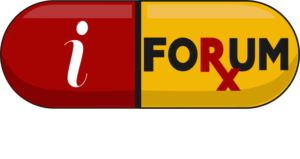Vaccinations have repeatedly proven to save lives by preventing disease, yet they remain underutilized in American adults. Depending on age and various indications, adults are recommended to receive up to 12 routine vaccines by the Advisory Committee on Immunization Practices (ACIP). The Vaccine Policy Collaborative Initiative conducted a survey of American physicians to assess perceived barriers in stocking and administering vaccines for adult patients. They found that common barriers were inconsistent assessment of vaccination status, insufficient stocking of certain recommended vaccines, inadequate insurance reimbursement, large financial outlays for vaccine purchases, and challenges relating to the transfer and documentation of vaccination information from alternate vaccinators.1
Pharmacists play an important role in ensuring adequate vaccine delivery to all adult patients, and it is essential to keep up to date with changing recommendations. The ACIP annually reviews and updates the adult immunization schedule for the Centers for Disease Control and Prevention (CDC). The 2014 guidelines are now available, and the updates include a few changes from the 2013 adult immunization schedule.2,3
Haemophilus influenza type b (Hib): Hib is no longer recommended for patients infected with HIV because their risk for Hib infection is low. One dose continues to be recommended for patients who have functional or anatomic asplenia, have sickle cell disease, or are undergoing elective splenectomy. However, a three-dose regimen separated by 4 weeks is now recommended 6-12 months after a hematopoietic stem cell transplant. A row for Hib has also been added to the vaccination chart.
Influenza: Flublok® is the first recombinant influenza vaccine, and has been newly licensed for the 2013-2014 flu season. It is given intramuscularly, and is approved for adults ages 18 to 49. Uniquely, it does not use eggs at all in its production, and can therefore be given to patients with any egg allergy. It also does not contain a live influenza virus, and has no antibiotics or preservatives.
All other inactivated trivalent and quadravalent influenza vaccines do contain contents of ovalbulmin to varying degrees. Because of this, any other non-recombinant influenza vaccines given intramuscularly or intradermally must be used cautiously in patients with an egg allergy. However, the 2014 guidelines have changed to allow these vaccines to be used in patients with hives-only egg allergy reaction. Those patients with an anaphylaxis to eggs should be given Flublok®. The live attenuated influenza vaccines have no data in patients with an egg allergy.4
Tetanus-Diphtheria (Td) and Tetanus-Diphtheria-Pertussis (Tdap): Td/Tdap guidelines did not change, but the language was clarified to coincide with the pediatric recommendations. Recommendations for a Td booster every 10 years after a Tdap administration now appears in the footnote of the 2014 guidelines.
Human Papillomavirus (HPV): The HPV language was clarified to coincide with the pediatric recommendations by changing the interval wording from “months” to “weeks”. The complete series consists of 3 doses; the second dose should be administered 4 to 8 weeks after the first dose, and the third dose should be administered 24 weeks after the first dose and 16 weeks after the second dose. It is also no longer indicated for health care personnel unless they meet other indications for this vaccine.
Pneumococcal: Pneumococcal 13-valent conjugate (PCV13) and pneumococcal polysaccharide (PPSV23) were switched in the order that they appear on the vaccination chart to indicate that PCV13 should be given first.
Since the 2013 recommendations were released, an interactive adult immunization scheduler is available for use: http://www.cdc.gov/vaccines/schedules/Schedulers/adult-scheduler.html
References:
- Centers for Disease Control and Prevention. Adult Immunization Schedules. Vaccines 2014. Available at: <http://www.cdc.gov/vaccines/schedules/hcp/adult.html>
- Bridges CB, Coyne-Beasley T. Advisory committee on immunization practices recommended immunization schedule for adults aged 19 years or older: United States, 2014. Ann Intern Med. 2014;160(3):190-97.
- Hurley LP, Bridges CB, Harpaz R, et al. U.S. physicians’ perspective of adult vaccine delivery. Ann Intern Med. 2014;160(3):161-70.
- Centers for Disease Control and Prevention. Seasonal Influenza Vaccine Safety: A Summary for Clinicians. Seasonal Influenza 2014. Available at: < http://www.cdc.gov/flu/professionals/vaccination/vaccine_safety.htm>
 iForumRx.org is a web-based community of practice designed to inform ambulatory care pharmacy specialists, pharmacy residents, and student pharmacists about high-quality, practice-changing evidence.
iForumRx.org is a web-based community of practice designed to inform ambulatory care pharmacy specialists, pharmacy residents, and student pharmacists about high-quality, practice-changing evidence.